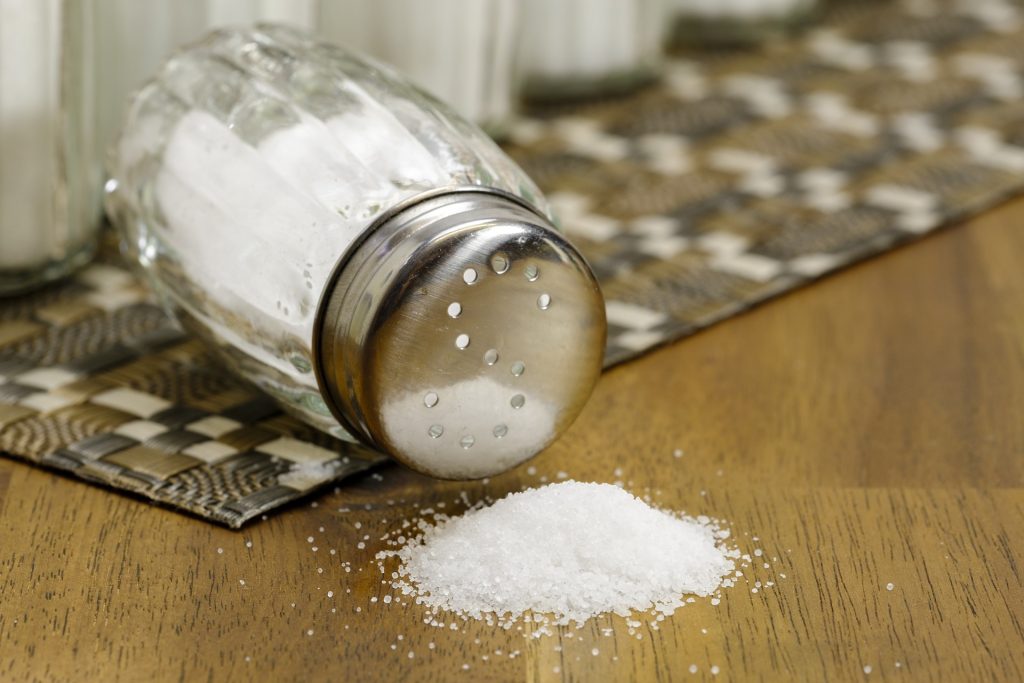
Researchers have found that, besides raising blood pressure, too much salt can disrupt the immune system by affecting their energy balance in immune calls and weakening them.
Back in 2015, the researchers had found that raised sodium concentrations in the blood affect both the activation and the function of patrolling monocytes — the precursors to macrophages.
“But we didn’t know exactly what was happening in the cells,” said Dr Sabrina Geisberger of the Berlin Institute for Medical Systems Biology (BIMSB) at the Max Delbrück Center for Molecular Medicine in the Helmholtz Association (MDC). She is lead author of the study of an international research team led by MDC scientists together with colleagues from University of Regensburg and from Flanders Institute for Biotechnology (VIB) /Hasselt University in Belgium.
The researchers began in the lab by measuring the metabolism immune cells exposed to high salt concentrations.
Changes appeared after just three hours. “It disrupts the respiratory chain, causing the cells to produce less ATP and consume less oxygen,” explained Prof Geisberger. ATP (adenosine triphosphate) powers all cells, providing energy for the ‘chemical work’—synthesising proteins and other molecules—needed for muscle power and metabolic regulation. ATP is produced in the mitochondria, the cell’s ‘power plant,’ using a complex series of biochemical reactions known as the respiratory chain. “Salt very specifically inhibits complex II in the respiratory chain.”
Consequences include the monocytes maturing differently due to a lack of energy. “The phagocytes, whose task is to identify and eliminate pathogens in the body, were able to fight off infections more effectively. But this could also promote inflammation, which might increase cardiovascular risk,” explained Professor Dominik Müller of the Experimental and Clinical Research Center (ECRC). Salt was shown to affect the functioning of human phagocytes in the same way.
Researchers at the ECRC then conducted a study in which healthy male participants six grammes of salt in tablet form to their usual diet every day for 14 days. In another clinical study, the researchers investigated a familiar scenario: eating a pizza from an Italian restaurant. After analysing the monocytes in the participants’ blood, they saw that the mitochondrial dampening effect doesn’t just happen after an extended time with high salt intake—it also happens after a single pizza. The pizza experiment showed that the effect was fairly short. After eight hours, the effect was barely measurable.
“That’s a good thing. If it had been a prolonged disturbance, we’d be worried about the cells not getting enough energy for a long time,” commented Prof Müller. Mitochondrial activity is therefore not permanently stalled. However, the risk remains if a person eats very salty foods throughout the day. The pizza, incidentally, contained ten grammes of salt. Nutrition experts recommend that adults limit their daily intake to five or six grammes at most. The calculation includes the salt that is hidden in processed foods.
“The fundamental finding of our study is that a molecule as small as the sodium ion can be extremely efficient at inhibiting an enzyme that plays a crucial role in the respiratory chain,” said biochemist and metabolomics expert Dr Stefan Kempa of BIMSB. “When these ions flood into the mitochondria—and they do this under a variety of physiological conditions—they regulate the central part of the electron transport chain.” It therefore seems to be a fundamental regulatory mechanism in cells.
The next step is determining whether salt influences this mechanism in other cell types. Prof Kleinewietfeld believes that this is extremely likely because mitochondria aren’t just present in immune cells; they exist in every cell of the body, save for red blood cells.
Though the way in which different cell types regulate sodium influx into the mitochondria is still not properly understood, the study confirms that overconsumption of salt is unhealthy. “Of course the first thing you think of is the cardiovascular risk. But multiple studies have shown that salt can affect immune cells in a variety of ways. If such an important cellular mechanism is disrupted for a long period, it could have a negative impact—and could potentially drive inflammatory diseases of the blood vessels or joints, or autoimmune diseases,” said Professor Markus Kleinewietfeld of Hasselt University and VIB.
Source: Medical Xpress
More information: Sabrina Geisberger et al, Salt Transiently Inhibits Mitochondrial Energetics in Mononuclear Phagocytes, Circulation (2021). DOI: 10.1161/CIRCULATIONAHA.120.052788

